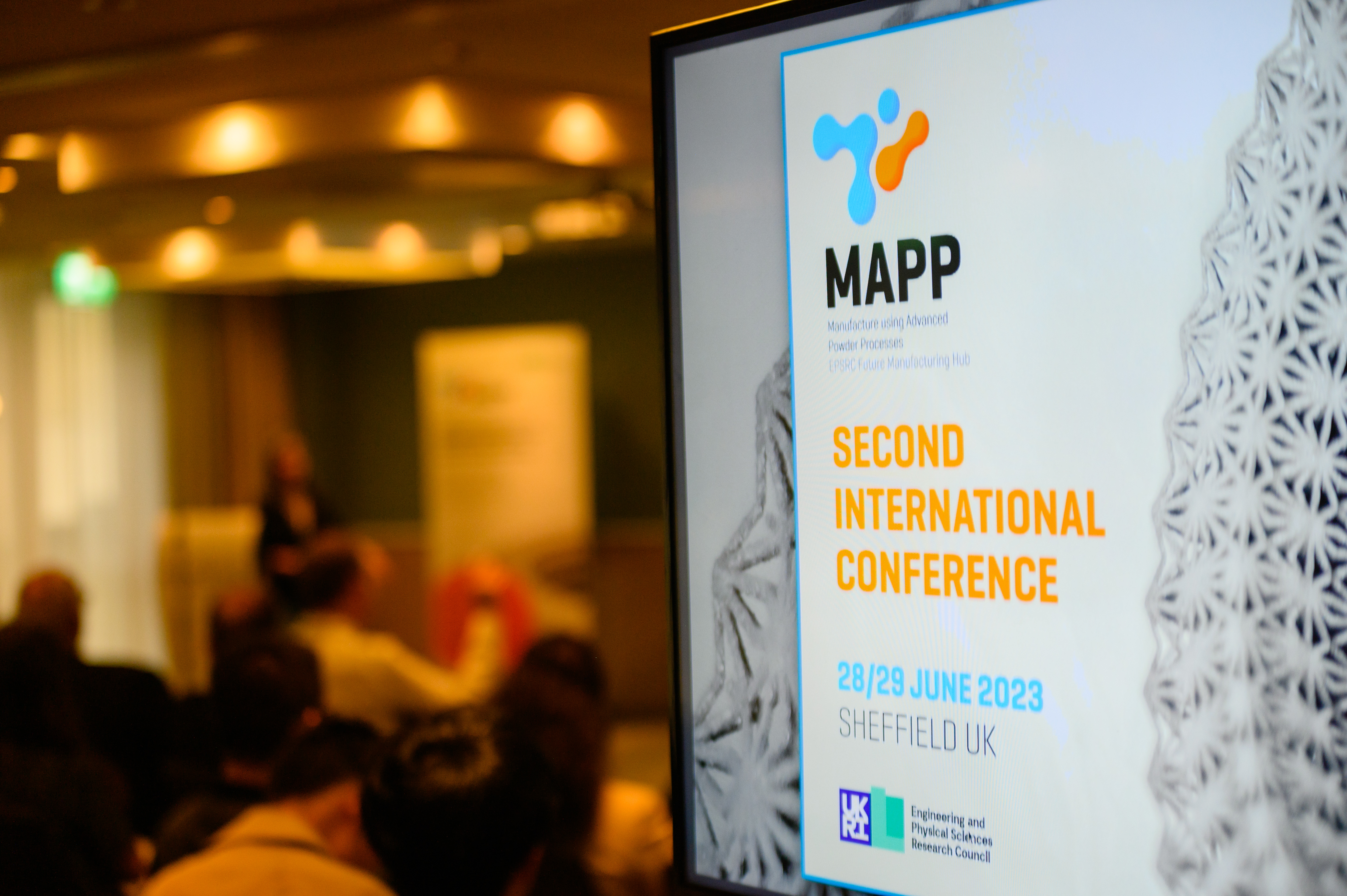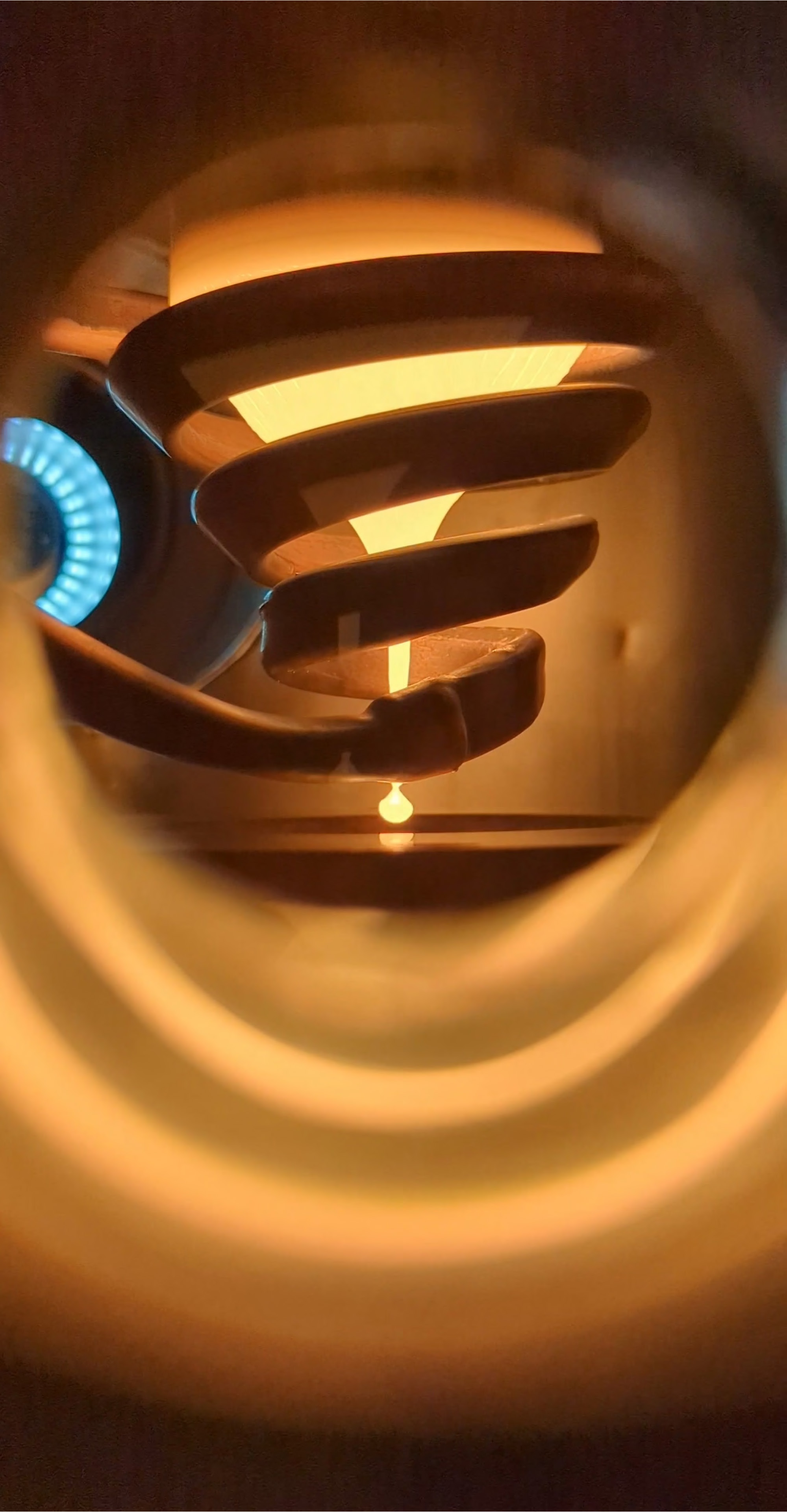All News /
News:
MAPP executive member Professor Peter Lee recognised as world leader in additive manufacturing
27 / 04 / 19
The Royal Academy of Engineering has announced ten years of support for Professor Peter Lee from UCL Mechanical Engineering as a world leader in applying synchrotron imaging to help develop more efficient, environmentally friendly and cost effective additive manufacturing (AM) technologies.
Professor Lee, who is a member of MAPP'S executive, will use the advanced imaging capability of Diamond Light Source, the UK’s synchrotron, to help develop tomorrow’s improved, cost effective AM technologies.
Using ultrafast x-ray imaging and diffraction, the project will include the creation of AM machines that can see inside the printing process to capture key phenomena. These insights will be used to accelerate the development of new materials, design rules, AI control algorithms and multi-scale predictive models, while removing expensive trial-and-error development in 3D printing.
On receiving the award, Professor Lee, said: “Additive manufacturing promises to be a truly enabling technology. It will allow us to make personalised products that are digitally designed and electronically delivered.
"These designs can then be fabricated on the other side of the world to help tackle a range of challenges, from alleviating drought to solving medical emergencies.
“The new insights gained from our project will help to make metal AM a more reliable and affordable technology for the production of components, with applications in a wide variety of fields, from aerospace to biomedical.
"This will place the UK at the heart of this key underpinning technology, enabling manufacturing in a truly digital environment from concept to final component, as well as personalised production, while reducing resource consumption.”
Professor Nigel Titchener-Hooker, Dean of UCL Engineering, said: “We’re thrilled that Peter’s invaluable contributions to additive manufacturing and his future potential have been recognised by the Academy with this prestigious award. Peter is at the forefront of developing unique nanoprecision equipment that applies ultrafast synchrotron X-ray imaging to improve advanced materials and manufacturing techniques.
"The support of the Academy will enable Peter and his academic and industrial collaborators to develop this vital technology to help lead the way in design without bounds, revolutionising manufacturing so that it becomes a digital tool where future generations don’t have to worry about how objects are produced and can focus solely on personalised design.”
The £2.6m funding for Peter Lee and his Harwell-based team is one of nine prestigious Royal Academy of Engineering Chairs in Emerging Technologies awarded in 2019, each of which focuses on developing technologies with the potential to bring significant economic and societal benefits to the UK.
The ten-year support provided to these world-leading engineers aims to enable the progress of disruptive innovations from basic science through to full deployment and commercialisation.
Professor Dame Ann Dowling OM DBE FREng FRS, President of the Royal Academy of Engineering, said: “The new technological areas advanced by our Chairs in Emerging Technologies have the potential to transform our everyday lives, as well as positively impact to the UK’s economy and generate new sources of wealth. Engineering is critical to achieving the goals of the UK government’s industrial strategy, and investment in emerging technologies means that we can secure our footing in important future markets.
“For these technologies to reach their full potential it is important to invest in the pioneering individuals who advocate for them, as without their vision and foresight it is difficult to identify the products and services of tomorrow.”
More:
News
-

-
Exploring STEM - 4th May 2023
The MAPP Stand was a hit at the Exploring STEM for Girls event at the Octagon on the 4 May 2023.<...

